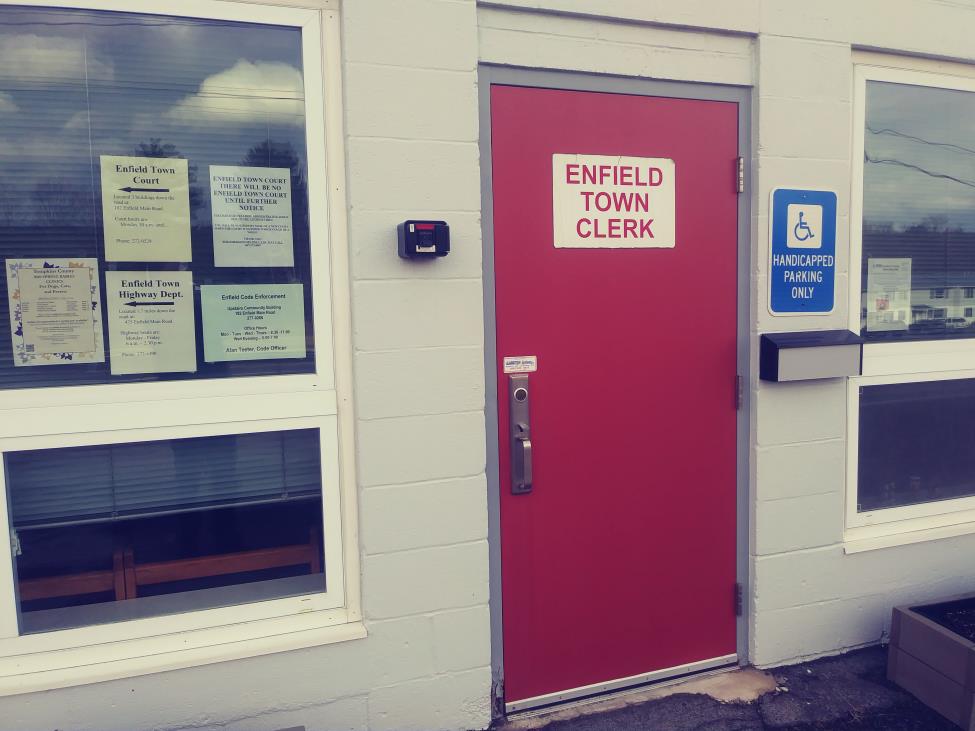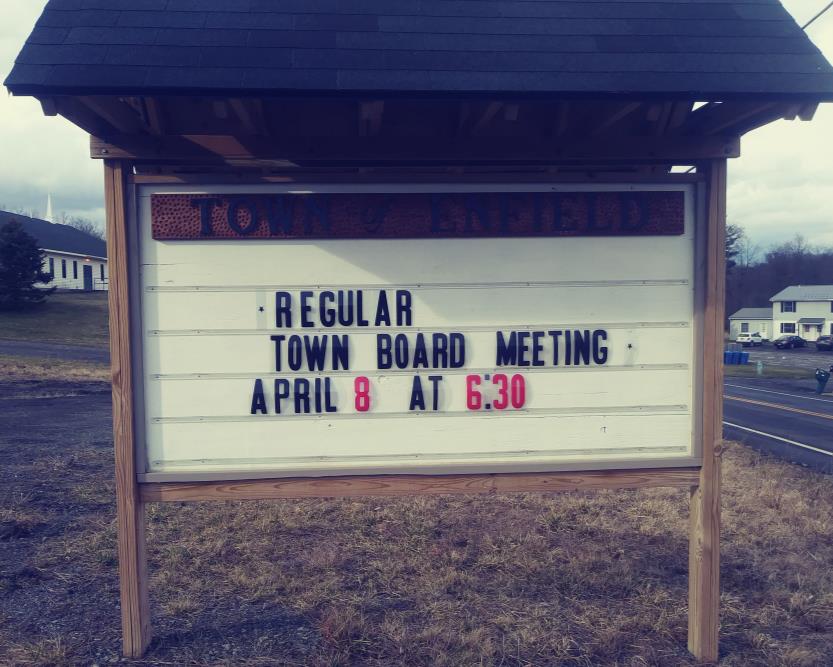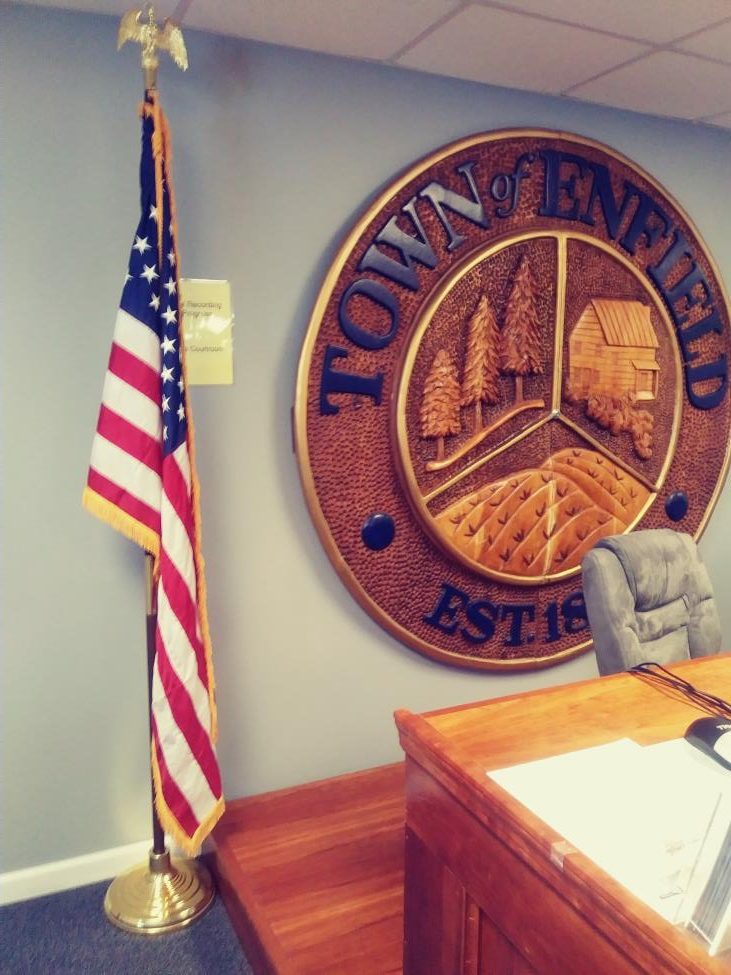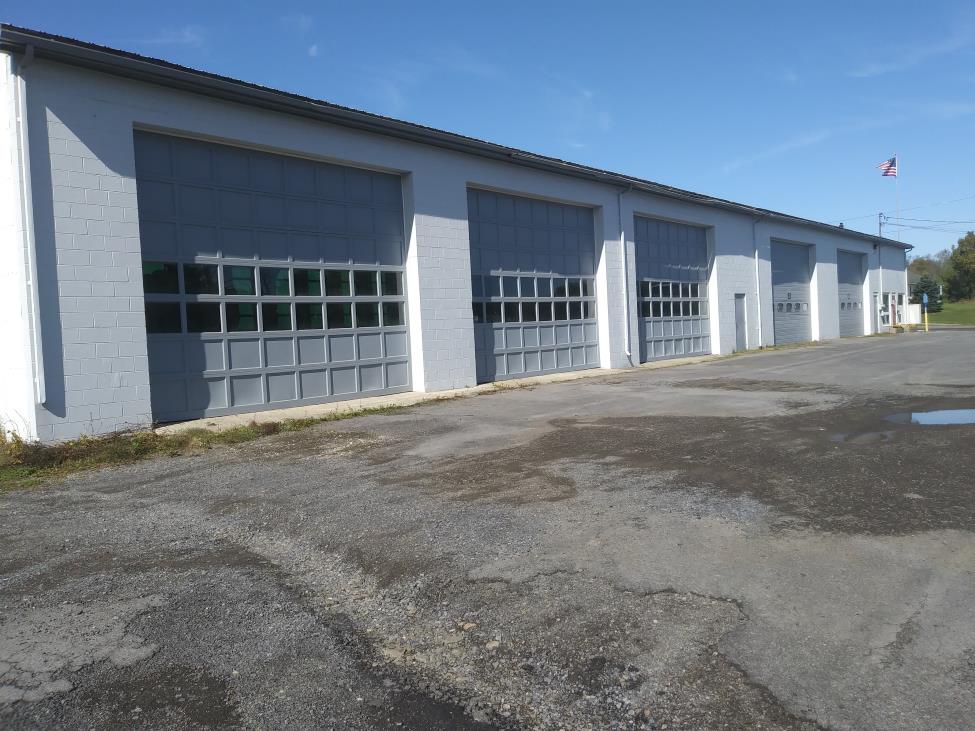County officials promise more candor on COVID-19 cases, local responses
by Robert Lynch, March 28, 2020

As of Friday (March 27th), 48 people had tested positive in Tompkins County for the COVID-19 virus, a spike of 50 per cent from the day before.
But how are those patients doing? Are any in the hospital? How seriously ill are they? So far, officials have responded with silence.
That may soon change.
After local municipal leaders urged county officials during an hour-long conference call Saturday morning (Mar. 28th) to provide more information on patient status and hospitalizations, Tompkins County Administrator Jason Molino and Public Health Department Director Frank Kruppa promised they’d work with hospital authorities to share more details with both community leaders and the public.
“We’re going to improve the messaging,” promised Molino, a pledge echoed by Kruppa.
The Administrator acknowledged that some communities have chosen to release more information on patient status than has his own county. As to those other counties’ practices, cautioned Molino, “Some we agree with; some we do not.”
To date, County and local health officials have chosen to release only the raw numbers from local COVID-19 testing or publish releases when a person becomes infected who might have had particularly frequent contact with the public. Officials have usually waived off additional questions about patient status, citing privacy concerns.
According to Health Department statistics released late Friday (Mar. 27th), 1,191 persons in Tompkins County had been tested for COVID-19. Of those, 48 had tested positive, 515 negative, with 628 of the remaining tests pending. Though only about one in 12 of the returned tests had revealed a COVID-19 infection, the positive cases Friday had risen by as many as 16 cases from the day before and were more than double the 23 cases reported Wednesday.
Kruppa cautioned that “it’s difficult to know” the reason behind the sudden increase given the relatively small number of cases overall. But Kruppa speculated the local rise travels on a “similar trajectory” with statewide increases, saying he believes local numbers “will mirror right along with New York State.”
Ithaca Mayor Svante Myrick, one of those on Saturday’s conference call, pressed County officials not only about hospitalizations, but also about whether Cayuga Medical Center is accepting COVID-19 patients from harder-hit parts of the state to relieve overcrowding at other hospitals.
“We don’t have any direct feedback on that,” Molino responded, but said he can ask that question with those at CMC.
One municipal official later interjected skepticism about learning true numbers, saying Cayuga Medical Center has “a long and storied history” of not being candid with the community.
The County Administrator’s central message to municipal leaders Saturday was to urge people to stay at home and not venture out, except to purchase essentials.
Everyone’s “getting a little cabin fever,” Molino acknowledged. “That is understandable.”
The stay-at home message prompted Myrick to ask whether the County should close the parks.
Molino hedged, indicating municipalities, for now, should make their own choices.
“It’s a good question,” Molino responded to the Ithaca mayor. “I hesitate to issue that directive… But it’s on our radar.”
One official advised Molino that the Ithaca Dog Park has already closed. Another reported New York State parks remain open, but have encouraged social distancing. Dryden County Legislator Martha Robertson suggested swings in municipal parks should be cordoned off to protect young visitors.
Conferees also shared municipal concerns, some of them financial. Molino revealed that County Government has instituted a freeze on hiring, as well as on vehicle and large equipment purchases. Molino also predicted he should know more in the next two weeks about potential federal reimbursement for municipal COVID-19 expenses, including salary payments to government employees sidelined by stay-at-home rules.
And Molino assured conferees that the county’s Office of Emergency Response is working to secure local governments hand sanitizer to replenish supplies depleted at the Enfield Highway Department and elsewhere.
Of the State-made sanitizer, Molino quipped, “It smells bad. Some people have kicked it back.”
###
Virus concerns force Town Hall closure; other measures
Enfield highway workers on call only; Town Board meetings go online
by Robert Lynch, March 21, 2020
As New Yorkers hunker down, keep clear of one another, and perhaps, eventually, shelter in place, Enfield Town officials, beginning late Monday (March 16th) took a series of drastic steps to protect the public—and themselves—from the Coronavirus outbreak.

Most dramatically, Enfield Supervisor Beth McGee ordered the closure of the Town Hall and other Town municipal buildings. Until further notice, Town Clerk Ellen Woods will offer clerk’s services only via mail, phone or email. Similarly, Code Officer Alan Teeter will work remotely, like Woods, conducting business by mail, email, or phone.
Enfield Town Court, by orders of the District Court Judge, has suspended operations indefinitely, cancelling sessions at least until early-May. As stated by McGee to her Board members Monday night, “The Justice and Court Clerk will deal with court matters from home or in office as the need arises.”
Similarly, he Enfield Highway Department office remains closed, though due to the nature of its services, highway maintenance staff will remain on call for tasks such as plowing snow.
“We will be on call. We will take care of the roads as we always have,” stressed Highway Superintendent Barry (Buddy) Rollins, as he advised Board members Wednesday Noon that he would be closing his Department later that day and keeping it closed through April second.
Enfield Town Board members, meanwhile, will venture within days or weeks into the brave new world of video conferencing.

One of the Governor Cuomo’s many Executive Orders, issued in the days following the COVID-19 pandemic’s arrival in New York, waived the strict requirements of the State’s Open Meetings Law, those which normally require municipal meetings to be open and publicly accessible.
Employing the Governor’s waiver, Supervisor McGee announced late Monday that meetings in the immediate future will be held via a Zoom web conference, which she and a Councilperson are attempting to set up.
“We’ll continue to work on providing as much public access to the meetings as possible,” McGee wrote to Board members Monday, “but they will not be held in Town buildings and the public is not allowed to attend in person,”
In his suspension of the relevant section of the Public Officers Law that requires open meetings, the Governor stipulated that conference call remote meetings are permitted “provided that the public has the ability to view or listen to such proceeding and that such meetings are recorded and later transcribed.” While the Enfield Town Board records its minutes and later posts them online, the requirement that the Town provide real time opportunities for viewing and listening could prove the greater challenge.
The Town Board next plans to meet Wednesday, April 8th, though Supervisor McGee has indicated she may call a special session for late-March.
The Supervisor’s decision to close offices and direct work-from-home followed the Governor’s Executive Order of last Monday that enabled relaxation of normal government operations through April 15th.
The order stated: “Any local government or political subdivision shall… allow non-essential personnel as determined by the local government, to be able to work from home or take leave without charging accruals…”
Nonetheless, the Order stipulated that work-from-home rules would apply only to “non-essential” staff and that local government gets to decide who qualifies. The provision prompted online discussions early in the week among Enfield’s Supervisor, Superintendent Rollins, and members of the Town Board.
Some in the discussion suggested highway maintenance is, indeed, an essential service. Councilperson Robert Lynch (this writer) observed that the indispensability of Rollins’ staff depends on conditions.
“What stands as ‘essential’ in a snowstorm may not become so necessary in fair weather,” Lynch said, proposing that highway staff continue to report to work so as to “err on the side of caution.”
Rollins’ decision of Wednesday Noon to shut his office and send home staff effectively ended the discussion. Board members, however, agreed that highway employees should be paid for the duration of their on-call absence.
The Enfield Food Pantry, meanwhile, remains operational. That said, the Sunday and Monday noontime distribution services will now change dramatically.

For the emergency’s duration, pantry patrons will no longer stroll the narrow aisles to pick up essentials. Rather, patrons will email their orders online, selecting both their food selections and a pickup time. Pickup times will be limited and slotted into a schedule. Volunteers will pack each food order and deposit it at a safe distance from each patron’s car, vehicles to be assembled in a line winding past the front of the fire station.
Patrons may place their food orders at http://thefirstbaptistchurchofenfield.com/
Stated Food Pantry coordinator Jean Owens in outlining the new rules, “Volunteers packing your food are a select group who have committed to social distancing for the duration.”
Meanwhile the Food Pantry is seeking additional volunteers to make socially-distanced in-home deliveries. Wrote volunteer Joanna Green on an Enfield Democrats’ chatroom at mid-week:
“We don’t yet know how many new volunteers we will need to make this new system work. We do expect to see a significant increase in the number of home deliveries needed over the next few weeks, as more people become restricted to their homes.”
###
County lawmakers approve trimmed-down aid package for Downtown Conference Center
by Robert Lynch; March 17, 2020
“We really are being asked to think long-term, and not solely on the experience that we’re having now.”
Tompkins County Legislator Anna Kelles Tuesday in support of the Downtown Ithaca Conference Center.
“This is just going to become, you know, a hole you throw money down.”
Kelles’ colleague, Legislator Henry Granison, in opposing Conference Center funding.

In the shadow of coronavirus fears—the public was barred from the Legislative Chambers and the County Attorney communicated from quarantine via Skype—the Tompkins County Legislature Tuesday (March 17th) gave final approval to an aid package which would allocate a set percentage of county’s hotel room tax to help underwrite a proposed $31.5 Million Downtown Ithaca Conference Center.
The county’s financial commitment—a far cry from the 50/50 risk sharing Ithaca City officials and project promoters had initially wanted—would allocate four per cent of the county room tax, an annually-estimated $120,000 at present, to support the Center’s development and fund its projected losses, deficits projected to push as high as $1.5 Million each year through 2050.
The support package cleared the Legislature by a vote of 10 to 4, with both of Enfield’s legislators, Democrat Anne Koreman and Republican David McKenna, voting their support. When outlining the project to the Enfield Town Board last week, Koreman had claimed she then remained “on the fence.”
Downtown Ithaca legislator Anna Kelles, prime mover behind the Conference Center initiative, Tuesday emphasized the County’s limited risk under the revised, negotiated agreement. Kelles, a State Assembly candidate, also argued that the facility would help diversify the local economy and should not be evaluated under the current cloud cast by the COVID-19 crisis.
“This project would not start for another three years,” Kelles stressed. “So we really are being asked to think long-term, not solely on the experience that we’re having now.”
But fellow Ithaca legislator Shawna Black, who’d initially backed the project, yet Tuesday opposed County participation, indicated events of recent days had changed her mind.
“Had we voted on this two weeks ago, I would have voted for it,” Black admitted. But now, Black continued:
“I am stuck with the fact that we are just in such an uncertain time and our economy is really not in a good place. We don’t have projections of it looking positive in the near future. I understand that people are saying that this is the way that will help us in three years, but the timing of this is really off for me.”
Similarly, Ithaca’s Henry Granison voiced doubts, concluding the issue now is “all about risk,” risk to the County and to City Hall. What’s more, Granison observed, were the Green Street project’s developer to scrap the Conference Center, it would then build more affordable housing to take its place.
“I don’t see that as a downside,” said Granison. “I see that as a positive side.”
Developer Vecino Group and its Chicago-based bankers have placed city and county lawmakers on a tight timetable to firm up financial commitments, promises that began with the County Legislature’s voting its “conceptual fiscal commitment” just six weeks ago. Since then, the parties have negotiated financial details largely behind closed doors.
Prior to Tuesday’s meeting, Enfield Councilperson Robert Lynch (this writer) submitted the Legislature a three-page letter urging the Legislature to table funding action or else reject the resolution entirely. Lynch argued that a post-coronavirus economy could decrease Conference Center demand and heighten the risk to taxpayers.
Acknowledging Lynch’s letter, Ithaca Legislator Rich John responded, that “I think you have to look past COVID-19… We have to look at the long-term economic health of the county.”
One lawmaker who changed his mind in favor of the multi-million dollar project was Caroline-Danby’s Dan Kline, who’d opposed the initial commitment in early-February, but is now relieved that modified language no longer places the County as “lone guarantor.”
Responded Dryden’s Martha Robertson, a Conference Center supporter, “I would hug Dan, but we can’t.”
###
Virus emergency may postpone Supervisor’s planned resignation
by Robert Lynch, March 16, 2020
Enfield Supervisor Beth McGee, who surprised many last Wednesday (March 11th) by disclosing to her Town Board plans to resign, now indicates the coronavirus emergency could postpone her official resignation and perhaps her departure date as well.

“Through this state of emergency I will continue to serve the town of Enfield as is my prerogative in order to provide consistency and confidence that our municipality can protect residents as they expect,” McGee wrote Saturday (March 14th) in an email to one Councilperson, a message she likely shared with her other Board colleagues.
In a surprise announcement to the Enfield Board three days earlier, the Supervisor, now entering her second two-year term, said, “Over the next month I will be submitting a letter to [Town Clerk Ellen Woods] as required by law to give a resignation date , and that will likely be April 30th.”
In clarifying Saturday that she intends to remain in office during the Covid-19 emergency’s duration, McGee did not specifically indicate whether she intends to delay the late-April departure date as well as her written resignation notice.
According to Tompkins County Democratic Elections Commissioner Stephen DeWitt, no action to elect the Supervisor’s replacement can occur until McGee files official paperwork with Clerk Woods, and then Woods informs the Board of Elections.
Once McGee resigns, or perhaps actually leaves office—DeWitt was unsure as to the law—the Enfield Town Board could select her interim replacement for the remainder of 2020; and then commence procedures toward a special election in November for someone to fill out the second half of McGee’s term during 2021.
The Commissioner pointed this writer to two sections of New York law. The first, Section 31(2) of the Public Officer’s Law, specifies that “in no event shall the effective date of [a Town Officer’s] resignation be more than thirty days subsequent to the date of its delivery or filing.” That section would require that for McGee to maintain the April 30th departure date, she could file her paperwork no sooner than March 31st.
DeWitt also pointed to Section 6-116 of New York’s Election Law, whose language, given the timing of McGee’s expected resignation and the virus-prompted, gubernatorial-mandated shortened candidate petitioning period, could throw the Democratic nomination for McGee’s 2021 replacement into the hands of Enfield’s seven sitting members on the Tompkins County Democratic Committee.
In explaining her resignation plans to Board colleagues March 11th, McGee said:
“I cannot maintain the same high level of commitment beyond what’s generally expected of the Supervisor that I normally have. And there just aren’t supports here in place for that, and I am not able to do all that I want to do for residents.”
In an interview with the Ithaca Times, posted online as Wednesday’s meeting began, the Supervisor was more candid, telling the paper’s editor that this year’s debate about including the Pledge of Allegiance in meeting agendas bothered her:
“The fact that we just spent two months out of 12, with a very long agenda of things to get done in the year, listening to people complain about the Pledge of Allegiance for hours, I like to be more productive than that… I feel that there are better places for me to use my energy and my optimism.”
While telling the paper she’d enjoy “staying plugged into my community,” McGee acknowledged the Pledge debate impacted her decision.
“But as far as managing the circus full of monkeys that is the town, it’s not sparking joy, let’s put it that way,” McGee told its editor.
The Finger Lakes affiliate of the National Alliance on Mental Illness (NAMI) recently announced it has hired McGee as its Executive Director. NAMI Finger Lakes’ news release stated McGee would work half-time as NAMI Finger Lakes’ first paid employee.
When qualifying her resignation timetable Saturday amid the Covid-19 emergency, the Supervisor once again threw a jab at Councilperson Lynch, the Board member with whom she most frequently disagreed during last year’s campaign.
“I have been notified you reported on your website that the Supervisor has resigned,” the Supervisor wrote Lynch. “This is a lie.”
While Lynch reported on this website, consistent with the Ithaca Times’ reporting, that McGee had announced “her plans to resign as Supervisor” effective April 30th, McGee apparently took issue with posted headlines which may have implied her resignation had been finalized. (The Ithaca Times had reported that McGee planned to submit her resignation in writing at the same meeting.)
“I regret to have misquoted you,” Lynch wrote in a Monday reply to McGee’s Saturday email. However, “A ‘lie’ is not the same as a misstatement of fact. I have never called you a liar, nor will I,” Lynch insisted, stating he’s always in the past given McGee the benefit of the doubt that she may, instead, have been misinformed.
###
Beth McGee reveals plans to resign as Enfield Supervisor; assumes job as counseling administrator
(Please note the clarification of this headline above)
by Robert Lynch, March 12, 2020
In a move which may have stunned all but her most loyal supporters, Enfield Supervisor Beth McGee announced to her Town Board Wednesday (March 11th) her plans to resign as Supervisor and leave the Board, effective April 30th.
McGee revealed her planned departure matter-of-factly at the close of an otherwise routine report of her administrative activities during the past month. The Supervisor did not mention her resignation in that report’s written summary.
“I cannot be doing this,” McGee told the Town Board, referencing the demands of her Town office. At the Board’s two most recent meetings, the Supervisor complained that too much was expected of her given the Enfield Supervisor’s half-time, $20,000 per year job status. Just the previous Thursday, March 5th, McGee had advised the Board she would relinquish immediately—and arbitrarily—a key and legally-required part of her job, that of Town Budget Officer.
“I’m not going to do the Budget Officer’s position,” McGee said at the time. “I’m just putting that out there right now. I don’t care how this turns out. I’m not doing that,” she emphatically instructed her Board.
McGee Wednesday offered no direct explanation for her sudden, complete departure. But a news release from the Finger Lakes affiliate of the National Alliance on Mental Illness (NAMI), posted March 6th on McGee’s personal Facebook Page, announced McGee’s hiring as NAMI Finger Lakes’ Executive Director. The release stated McGee would work half-time as NAMI Finger Lakes’ first paid employee.
During their recent campaigns for political office, both Beth McGee and her husband, Darren, had pointed with pride to their volunteer service in mental health counseling.
Quick-thinking online news junkies may have been less surprised by the Supervisor’s disclosure than were the nearly 20 spectators in Enfield’s meeting room. The Ithaca Times posted a news story on its website announcing McGee’s resignation perhaps an hour before the meeting began.
After McGee’s announcement, the Enfield Board plodded through several hours of regular reports and actions, only to conclude with tributes to McGee from her Board colleagues and a member of the public.
Councilperson Mimi Mehaffey, a long-time McGee ally, was brought to tears as she spoke to attendees, “You have no idea of how hard she worked behind the scenes,” Mehaffey said of McGee.
Councilperson Robert Lynch (this writer) who has frequently argued with McGee during the past year concerning issues ranging from wind regulation to the most recent disagreement over the Pledge of Allegiance, said of the Supervisor, “Thank you for your service, thank you for your passion, and for your love of this community.”
New York’s Public Officers Law allows the Enfield Town Board to select an interim successor following the Supervisor’s departure. Candidates would then run in a special election to fill out the balance of McGee’s term, through 2021. Yet another Supervisor’s election would follow in November of that year.
(This story will be expanded at a later time.)
The Ithaca Times has also posted an online story regarding Supervisor McGee’s impending resignation:
###
Enfield Board approves Sheriff’s station contract; rebids solar project
by Robert Lynch, March 12, 2020
During a meeting overshadowed by Supervisor Beth McGee’s unexpected resignation, the Enfield Town Board Wednesday (March 11th) authorized a contract to bring a Tompkins County Sheriff’s substation to the Town, and also moved—for this, the second time—to construct a small array of solar panels adjacent to the town’s Highway Garage.

Sheriff’s Substation: The Board’s unanimous endorsement of a one-year agreement between Tompkins County, its Sheriff’s Department, and the Town, fulfills an initiative launched by Supervisor McGee and her husband, Darren, last September, one which would quarter a part-time Deputy outpost within the Town’s largely-unused old Highway Barn attached to the Town Clerk’s office.
The Board’s Resolution made the agreement effective April first of this year. It remains uncertain how soon Deputies will begin using the site.
Under the agreement, the Town will provide the Sheriff’s Department use of a small office, restrooms, and one of the building’s five bays for storage of a patrol car. The agreement also calls for the County to fund one-half the cost of a heat pump the Town will install to upgrade the area’s heating and ventilation system. Previously approved by the Board, the heat pump would likely cost each party about $1,500.
Once finalized by County officials and implemented, the satellite Sheriff’s station would quarter two Deputies at the beginning and end of their shifts and at other times as needed by the Department. The Town seeks to shorten response times for law enforcement emergencies, both in Enfield and within other communities in western Tompkins County. At present, the Department dispatches officers from the Sheriff’s headquarters on Warren Road in Lansing.
Board members’ only disagreement Wednesday concerned the contract’s initial length. All but one member voiced support for keeping the time frame brief, limiting it to one year. Led by Councilperson Stephanie Redmond, the majority cautioned that the shorter term would better enable the Town and its residents to terminate the arrangement should they determine the arrangement unsatisfactory. Redmond stated that some in her community are concerned about “over-policing.”
Councilperson Robert Lynch (this writer) suggested a one-year agreement was too short, Lynch saying he’d prefer a contract of “two, three, or five years.” Lynch questioned whether the Sheriff would accept, or County Government fund its share, for a facility officers might use for only 12 months. Lynch bowed to the majority’s wishes, but said he’d hope any subsequent contract extensions would span longer terms.
The negotiated agreement does include a 90-day termination provision, which either party may exercise. Redmond argued, however, that the clause provides inadequate protection for some who might need more time to evaluate the facility’s suitability.
During the discussions prior to the Board’s vote, Supervisor McGee said she’d requested and obtained tighter restrictions regarding weapons storage at the site. Under the agreement’s negotiated language: “All vehicles and all weapons used in relation to the Licensed Premises, or stored therein or nearby thereto, shall be secured at all times and the County shall be solely responsible for all use or misuse of the said vehicle(s) or weapon(s) by any authorized or unauthorized persons or third parties.”
Solar Project: The Town Board’s other major action authorized a second Request for Proposals (RFP) soliciting contractors to bid on a $50,000 solar array to be built on Town-owned property near the current Highway Garage.
The Town seeks to implement a state-authorized grant to construct the array in an effort to cut its electric bill. The plan targets the project’s completion by late-November of this year.
Under the project timetable authorized Wednesday, contractor bids must be submitted by May 8th, with an award expected by June 30th.
The Town Board rejected an initial round of construction bids in January, members concluding the three offers submitted differed from one another in too many respects; that certain requested apparatus warranted deletion; and that the initial RFP it had advertised deserved revision.
###
Enfield Board adopts Pledge of Allegiance procedures, but resists oath’s full return
by Robert Lynch, February 26, 2020
“Only by request.”

Such will become the procedure for reinstating the Pledge of Allegiance at the beginning of monthly meetings following action Wednesday (Feb. 26th) by the Enfield Town Board.
With Pledge supporter Robert Lynch (this writer) casting the lone dissent, the Board adopted a resolution, authored by Supervisor Beth McGee, affirming the right of Board members or the public to recite the Pledge of Allegiance, but only under a meeting’s introductory Privilege of the Floor.
The Board declined to return the Pledge to its original place within a meeting’s regular order of business, a position it had occupied before the Board removed it January 8th amid concerns by some members that the Pledge’s “under God” reference violates separation of Church and State.
Before adopting Supervisor McGee’s resolution, the Board tabled Councilperson Lynch’s stronger resolution that would have effectively reversed January’s vote. The Lynch compromise would have instructed the presiding officer to urge members to stand at every meeting and designate a Board member to lead in reciting the Pledge. Lynch’s measure would have acknowledged anyone’s right to decline participation “based on his or her political, ethical, or religious beliefs, or for any reason whatsoever.”
In debate preceding the votes, McGee indicated she felt return of the “under God” reference within a mandatory agenda item constituted compelled speech, conduct Supreme Court precedent explicitly prohibits. Nonetheless, Lynch’s tabled resolution provided that “neither the meeting’s presiding officer, nor any member of this Board, shall coerce, pressure, or compel any Board member or meeting attendee to recite the Pledge of Allegiance, or any portion thereof.”
Lynch said that he opposed the McGee resolution, and an amendment attached to it, because he believed the measure was not strong enough.
As many as 20 residents took turns before the Board’s votes Wednesday to comment on the Pledge issue. Seventeen of those 20 voiced support for the Pledge’s total return. Only three said they either supported the January action, or were noncommittal.
During Wednesday’s debate, Lynch reported that of the 21 emailed or spoken public comments given Board members in recent weeks, as many as 17 (81%) supported the Pledge’s return. Lynch said he saw the ceremonial oath as a patriotic exercise, not as a religious one. He added that the writings of Supreme Court Justices agreed with his conclusion.
The adopted McGee resolution, in its introductory paragraph, asserted that the Board “recognized Constitutional challenges” by including the Pledge in “the Town Board Regular Meeting Outline compelled by the Local Government.”
While no Supreme Court decision has reached the merits as to whether the “under God” phrase violates the First Amendment’s Establishment Clause, judicial commentary in one Supreme Court case classified the phrase as “ceremonial deism,” its religious impact “lost through rote repetition.” In another, former Chief Justice William Rehnquist wrote that an atheist’s objection to the recitation constituted a “‘heckler’s veto’ over a patriotic ceremony” in which others choose to participate.
Wednesday’s adoption resolution actually changed very little in Enfield Board procedure. Attendees were always free to recite the Pledge of Allegiance during their floor privileges, and at recent meetings, several have done so. The McGee resolution’s only real impact is that those who recite the Pledge will not now have that recitation time deducted from the three minutes allowed them to discuss other matters.
Note: The Ithaca Voice has also reported this story. View it at: https://ithacavoice.com/2020/02/enfield-town-board-walks-back-elimination-of-pledge-from-public-meetings/
###

